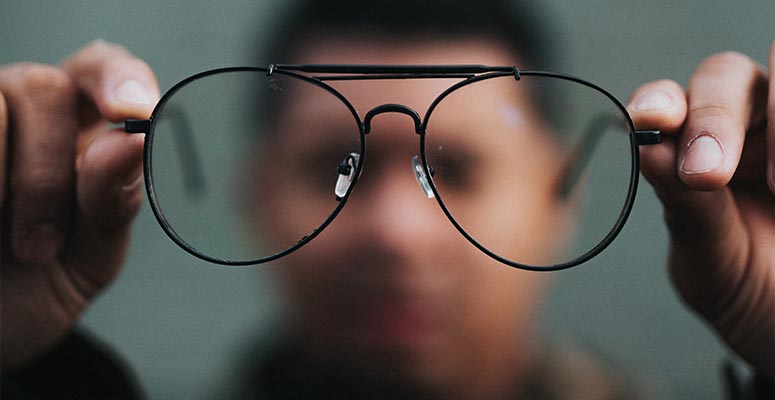
The 5 Most Common Vision Problems & How to Prevent them
It’s easy to take things that we use without second thought daily for granted. That’s why when something impacts a basic function like vision we are quick to go into a panic. Here are five common conditions that can affect our vision and tips on how to preserve your vision, now.
- Glaucoma
- Macular Degeneration
- Diabetic Retinopathy
- Cataracts
- Refractive Errors
Glaucoma
The issue surrounding glaucoma is that your eye needs a specific amount of fluid to fill the space within your eye. If this fluid is too full it creates pressure, which damages the optic nerve and impedes or completely restricts peripheral and then ultimately central vision. In order to prevent glaucoma and the complications associated with it we recommend working closely with your eye doctor to monitor eye pressure. Well maintained eye pressure will prevent vision loss.
Macular Degeneration
The macula, the center of your retina is relied upon for central vision through light sensing cells. As we age blood vessel growth and muscle tissue breakdown or degeneration in the macula make basic tasks challenging. These basic tasks can include reading, driving, making out faces and so much more. Preventative measures includes a variety of things like: regular exercise, avoid smoking, incorporate leafy greens and omega 3 into your diet, and monitor your blood pressure and cholesterol levels.
Diabetic Retinopathy
The retina takes in light and then transforms it sending the signals to your brain so that it can process the images. However, diabetes can cause the retina to swell, while also making blood vessels grow or leak which can cause floaters, blurring, flashes, and pressure. In order to prevent issues work on controlling your blood glucose levels as well as blood pressure. We also recommend yearly dilated eye exams to stay ahead of diabetic eye problems.
Cataracts
Objects within your view are passed as light rays through your lens in order to reach the light-sensing cells that send the signals to your brain to help create the image. Unfortunately, when cataracts are present they cloud the lens making your vision foggy, unclear, and it can even cause a “halo” effect. A great way to help prevent cataracts is to protects your eyes from harmful rays like blue light and sunlight, avoid smoking, and monitor your weight.
Refractive Errors
As a system our eyeball, cornea, and lens are shaped specifically so that light rays can refract or bend to land on our retina and then make their way to the brain. If this processes is impeded vision is impacted and typically is blurred. It can cause issues like:
- Astigmatism
- Presbyopia
- Nearsightedness
In order to prevent refractive errors we highly suggest annual exams before turning 18 as well as after the turning 65. We also recommend being seen every two years in-between the ages18-65 to monitor vision and ensure your ocular system is working smoothly and efficiently.

Don’t take your eyesight for granted, if you do it will become a sharp reality when something happens and your vision is negatively impacted. Schedule an appointment with us at Lifetime Vision Care, today to address any significant issues or for your annual exam!
Do you have questions
Contact Us Today!

